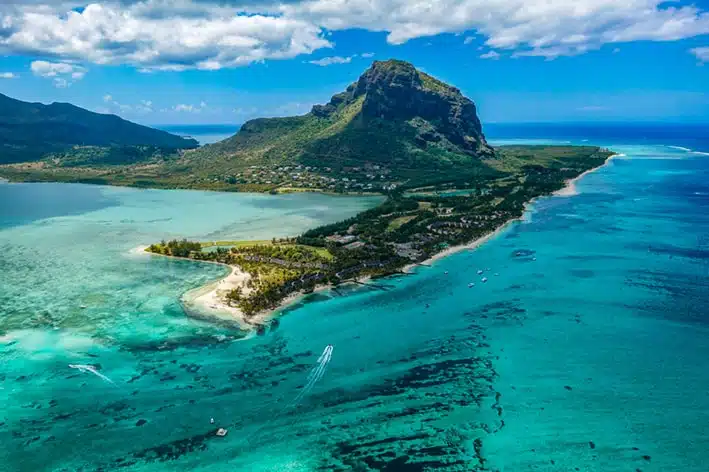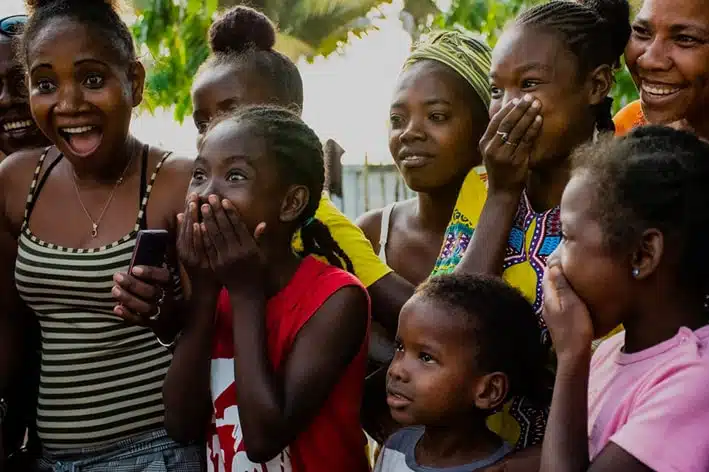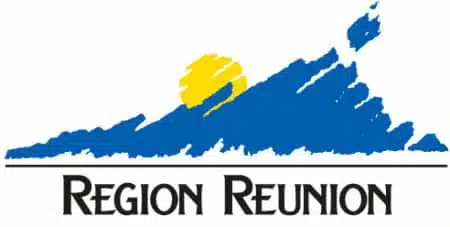In opening us up to new horizons, tourism also offers the opportunity to reflect on its environmental impact and find innovative solutions. The Vanilla Islands, treasures of the Indian Ocean, are proactive in facing the environmental challenges linked to tourism. How do these paradise islands innovate to harmonize tourism with preserving their environment? Let’s explore the promising initiatives adopted for respectful and sustainable tourism.
Tourism offers a fascinating opportunity to discover new horizons and enrich our life experiences while making us aware of the environmental challenges of our time. This awareness is essential in the face of rapid tourism expansion and its ecological impact.
Over the last two decades, global tourism has experienced impressive growth, encouraging deeper reflection on its ecological impact. It is estimated to be responsible for nearly 8% of global greenhouse gas emissions, mainly due to transportation. For destinations like the Vanilla Islands, this situation has spurred growing interest in reducing the carbon footprint, particularly concerning long-haul flights, paving the way for more sustainable and environmentally friendly initiatives.
The Impact of Tourism on the Environment
Tourist regions, such as the Vanilla Islands, face an exciting challenge: managing the increase in consumption of natural resources like water, energy, and food, necessary to accommodate visitors. This situation encourages innovative thinking about waste management and sustainable resource use.
Attention is also focused on the marine environment surrounding these jewels of the Indian Ocean, known for their turquoise waters and exceptionally rich seabeds. Faced with the vulnerability of these aquatic ecosystems to pollution and over-visitation, numerous initiatives emerge to protect them. Efforts are deployed to reduce waste accumulation on the beaches, and responsible practices are encouraged in nautical activities like ecological anchoring to preserve corals and solutions to minimize pollution from boats. For the Vanilla Islands, the sea is more than a geographical boundary; it is the vibrant heart of their existence and charm, inspiring more responsible and respectful management of this unique environment.
Finding the Balance
As a key economic driver for regions like the Vanilla Islands, tourism offers a unique opportunity to merge economic growth with environmental protection. The revenues generated by tourism play a vital role in funding local development, creating jobs, and improving community living standards. However, it is crucial to manage its growth to preserve the natural resources and fragile ecosystems that make these destinations charming.
The challenge is to achieve a balance where tourism develops sustainably. An integrated strategy, planning tourist development while respecting ecological limits, is essential. This requires close collaboration between governments, local businesses, communities, and tourists, ensuring that tourism continues to be a positive force for the Vanilla Islands. Together, it is possible to promote tourism that benefits both the inhabitants and the environment, ensuring its longevity for future generations.
Sustainable Tourism
Sustainable tourism is a promising ray of hope in the tourism sector. Beyond simple ‘green tourism,’ this concept proposes a holistic approach that respects the environment, local economy, and host communities. International initiatives such as Green Globe, Green Key, and EarthCheck play a leading role in promoting this sustainable vision.
At the heart of this approach, the inhabitants of the Vanilla Islands play a crucial role. Their deep knowledge of the region, traditions, and local ecosystems is a significant asset. By promoting community tourism, where visitors discover local customs, traditional gastronomy, and environmental conservation practices, the carbon footprint is reduced, and tourists are also offered an authentic and enriching experience. This approach helps to value and protect the cultural and natural heritage of the Vanilla Islands while providing visitors with a unique immersion in the richness of these lands.
Supporting Local Arts and Crafts in Sustainable Tourism
Furthermore, the Vanilla Islands’ approach to sustainable tourism also extends to the promotion of local arts and crafts, providing a direct economic benefit to the artisans. Tourists are encouraged to visit local workshops and studios where they can witness the creation of traditional crafts and even participate in workshops. These experiences not only support the local economy but also help preserve each island’s unique cultural identities. Through such interactions, travelers gain a deeper appreciation of the islands’ heritage and the importance of preserving these skills and traditions. These artisanal experiences, blending culture with tourism, exemplify a sustainable economic development model that benefits both the visitors and the local communities, fostering mutual respect and understanding that transcends the typical tourist experience.
Tips for Sustainable Tourism
For travelers eager to explore the Vanilla Islands responsibly, here are some guidelines:
Transport: Opt for airlines committed to carbon offsetting measures. On-site, adopt soft and eco-friendly modes of transportation, like biking or walking.
Accommodation: Choose establishments proudly displaying green labels, demonstrating their sustainable commitments.
Food: Immerse yourself in local gastronomy, which, in addition to being a delight, supports the local economy and reduces the carbon footprint.
Activities: Whether diving into turquoise waters or exploring the fauna and flora, do so with respect and awareness.
Waste Management: Adopt a proactive attitude towards waste. Reduce, reuse, recycle. Every gesture counts.
Responsible Boating: If you plan to sail, choose boats and companies adopting eco-responsible practices. This means avoiding using anchors on coral reefs, reducing oil and fuel spills, and even selecting boats powered by solar or wind energy when available.
Although the Vanilla Islands, like many other destinations worldwide, feel the effects of tourism on the environment, they demonstrate that it is perfectly possible to combine travel with respect for nature.
In partnership with 







